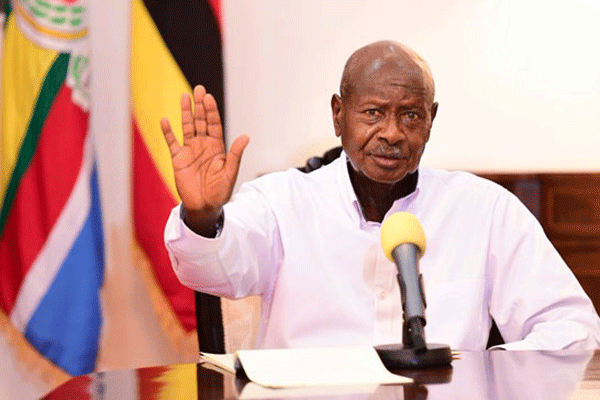Prime
Scientists seek to define ‘fully vaccinated’

A health worker vaccinates Dr Faith Nakiyimba, the Masaka District health officer, at Masaka Regional Referral Hospital on March 11. PHOTO | MALIK FAHAD JJINGO
What you need to know:
- The number of doses at NMS is only enough to provide second shots for those who are partially vaccinated, but more than 10 million Ugandans who are 18 years and above are yet to get their first shot.
Government is demanding that the elderly get booster shots to increase their immunity against the Omicron variant, which has triggered a spike in infections.
The orders also followed emerging research evidence that the highly-transmissible Omicron variant evades immunity from past infection and reduces protection from vaccines.
Researchers from the United Kingdom have also discovered that protection from double-shot Astrazeneca starts waning as early as after three months of full vaccination.
Reduced vaccine protection is a big concern, especially for the elderly, given the majority of the 3,297 Covid-19 deaths in the country were among those 50 years and above and those with comorbidities, according to government scientists.
Dr Andrew Kambugu, the director of Infectious Disease Institute at Makerere University, said the government should stick to the plan of only giving booster doses to the elderly because of the logistical challenges posed by mass administration of booster shots.
“We still need to increase our vaccination coverage before we put more emphasis on boosters,” he said, adding that the plan to change the definition of ‘fully vaccinated’ should be delayed.
“The government has already given an indication for people who should be given booster shots; the elderly, people with comorbidities and in a given location where there is a very sharp spike in Omicron infection, the people should also be considered.”
Dr Kambugu, however, warned: “We need to be very careful with this Omicron because it is an emerging picture and we may only know half of what we need to know.”
The Ministry currently defines “fully vaccinated” as those who have received two doses of the AstraZeneca, Sinovac, Pfizer or Moderna shots, or one dose of the Johnson & Johnson shot.
Some Ugandans opted for single-shot Johnson & Johnson, but Dr Alfred Driwale, the head of immunisation programme, said booster shots are inescapable in Covid-19 response.
“After completing this round of vaccination, the next we shall be going for is booster doses, whether it is for Johnson & Johnson or other Covid-19 vaccines,” Dr Driwale said.
Importance of booster doses
“Booster doses are a must in the future because how this epidemic is evolving, nobody is authoritative about it. So there are so many unknowns, boosters cannot be ruled out. Even now, there is guidance to have boosters for Johnson & Johnson vaccine,” he added.
The government is racing to inoculate at least 22 million people to effectively contain the pandemic.
The number of doses at NMS is only enough to provide second shots for those who are partially vaccinated, but more than 10 million Ugandans who are 18 years and above are yet to get their first shot.
But changing the definition also risks undermining trust in public health officials after three years of shifting recommendations that two or one shot of the vaccine could save recipients from the risk of severe disease and death.
There is also no clear proof that the vaccines protect one from infection or curb transmission of the coronavirus.
Dr Jane Ruth Aceng, the Health minister, two weeks ago said they were analysing the number of vaccines that would be needed for booster doses for the population.
What who says..
The World Health Organsiation representative, Dr Yonas Tegegn Woldemariam, said delaying general administration of booster doses is essential in ensuring equitable distribution of vaccines.
“When we say the developed countries don’t boost, we should also practice that; your
[government] commitment of delaying general boosting until the vaccination has reached 50 percent is appreciated,” he said.
“Uganda has achieved a significant level of vaccination; 26 percent of the eligible population having one vaccine and about 15.5 percent fully vaccinated. This is a relatively good level in the African continent.”




